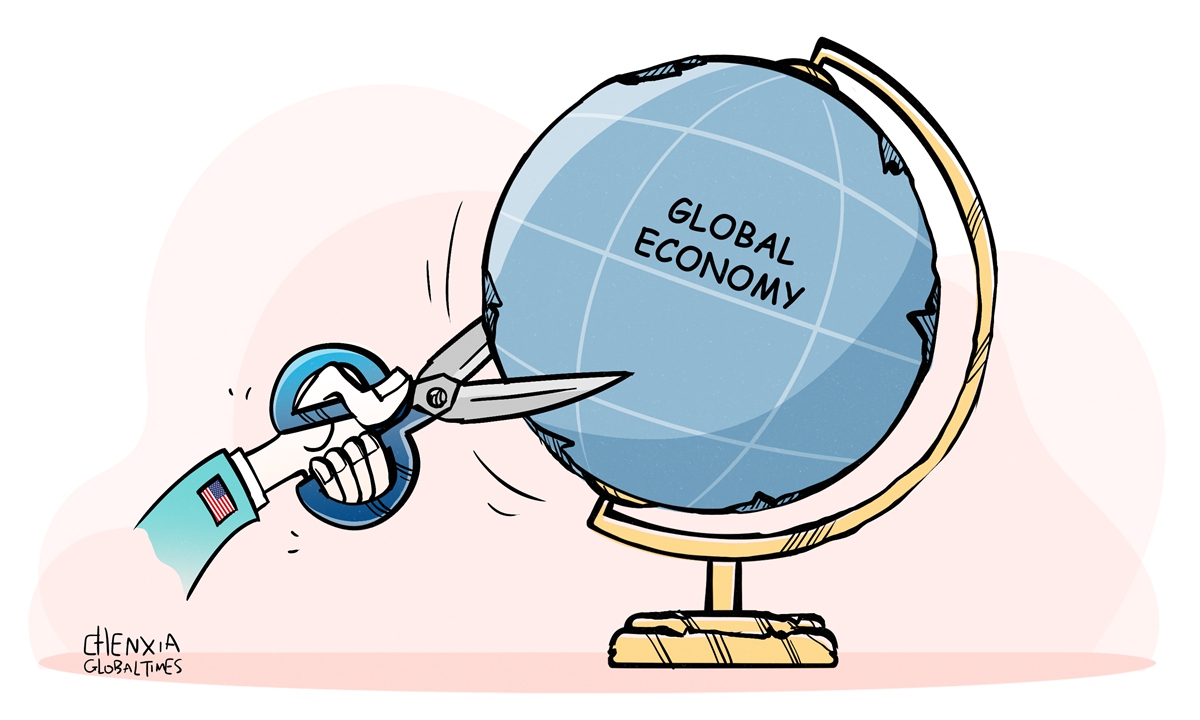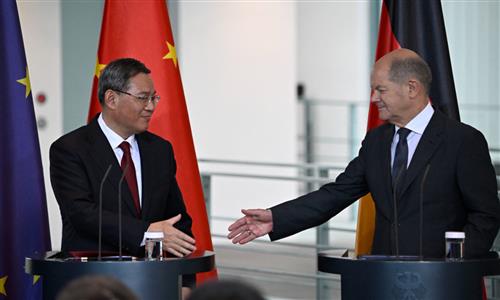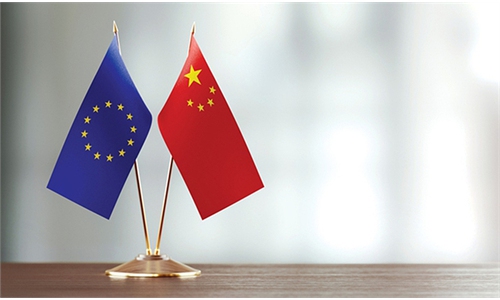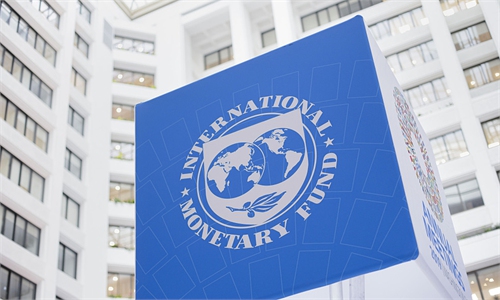
Illustration: Chen Xia/Global Times
In the past several years, the world has faced a growing economic headwind which is anti-globalization and against international free trade. Some governments, baffled and perplexed by anemic economic growth, sticky inflation and public unrest over an escalating cost-of-living crisis, have blindly embraced protectionism - an utterly wrong way to address these challenges.The outcome would only be worse, because trade and investment protectionism or isolation inevitably leads to lower efficiency and even higher prices, which is being vindicated by the elevated inflation and economic downturns in the US, the UK and some European economies. If these countries refuse to change course and readjust their misplaced policies, then more economic pain lies ahead.
To give the world a glimmer of hope, China, as the new beacon of free trade and globalization, is actively promoting openness, cooperation and integration. Guided by the Belt and Road Initiative, China, the largest trade power backed up with the world's most sophisticated manufacturing industry and the most secure and complete supply chain, is expected to leverage its digital advances and infrastructure capability to shore up economic integration and cooperation in Asia, the Middle East, and more broadly, the Global South.
In contrast, some Western politicians who vehemently advocate "de-coupling", "de-risking" or whatever other detached trade and investment policies which they believe offer them political advantage, will only divide the world's economy, driving it to the abyss of fragmentation, low efficiency and high inflation.
For an example, G7 economies including the US, Japan, Germany, the UK, France, Italy and Canada are expected to struggle to achieve meaningful economic growth in 2023 and 2024. On the contrary, the close integration and partnership between China and the ASEAN will ensure their economies grow further this year. In the first three months of 2023, China's economy rose by 4.5 percent.
The US, with its increasing protectionist approach, seems to have completely veered off the previous track of free trade and globalization. US policies have accelerated the deconstruction of globalization, which most economists said is self-defeating by depriving the economy of the benefits of globalization.
Blinded by their ideological prejudice and bias against China and some other economies, American politicians have abandoned conventional economic theories by "creating a narrative" that globalization and efficiency are "not good" and should give way to "well-protected jobs" and "de-coupling." Their undertone is that China has benefited more from globalization than the US since 2000.
US Treasury Secretary Janet Yellen said that trade relationships should be built around "trusted partners" even if it means "a somewhat higher level of cost, a somewhat less efficient system" at home. And US national security advisor Jake Sullivan recently said: "Ignoring the economic dependence (on China) that had built up over the decades of liberalization has become really perilous", noting the adherence to "oversimplified market efficiency" has proved to be a mistake for the US, according to media reports.
Alas, the Biden administration is rolling back on globalization, showing a willingness to accept low efficiency and high prices, even if it means the Federal Reserve has to tighten monetary policy by raising interest rates to tame inflation. But, higher rates and borrowing costs will inevitably bedevil the economy.
For centuries, the market has been left to decide how to deploy labor, technology and capital in the broad belief that efficiency and growth should override protectionism and isolationism. But the US government, concerned or envious about China's abundance in labor force and growing efficiency and competency, is turning its back on open markets, liberalized trade and maximum efficiency, wrongly believing that globalization was hurting America, its jobs and standards of living. In essence, the politicians in Washington fear the US will lose out to China in free and unfettered competition.
So, the US government has resorted to sweeping political means to impose tariffs and technology sanctions on China in order to suppress and slow down China's economic growth. That explains the true reason behind the US government's relentless assault on leading Chinese technology companies including Huawei, SMIC, TikTok and many others.
Even clear-minded Americans have realized that the US' sanction measures are government induced hysteria. Since 2020, the US Federal Communications Commission launched a program known as "Rip and Replace," asking American companies to tear out telecom equipment made by Huawei and ZTE at a cost of tens of millions of dollars, media reports said. In the end, the cost was passed on to ordinary American consumers. It turned out that the program is all political theater and a tremendous waste of American taxpayers' money. But American politicians' laughable paranoia about Beijing's influence on its national security is unlikely to end.
The US, used to be a central force of the liberalized economic order and the WTO, has in recent years turned away from negotiating more comprehensive free trade agreements and it has repeatedly refused to abide by WTO norms. Globalization, seen in recent decades as invincible, is evolving in unpredictable ways.
Globalization has in the past years helped raise growth rates and pull tens of millions of people out of poverty around the world. Now, economic fragmentation headed by the US government is eating away at the results of globalization. The winds of uncertainty being fanned by Washington and a few politicians in Europe must be stopped, because a disintegrated world economy means a less efficient, higher cost and much poorer world, which will lead to more economic volatility and political chaos.
The author is an editor with the Global Times. bizopinion@globaltimes.com.cn



